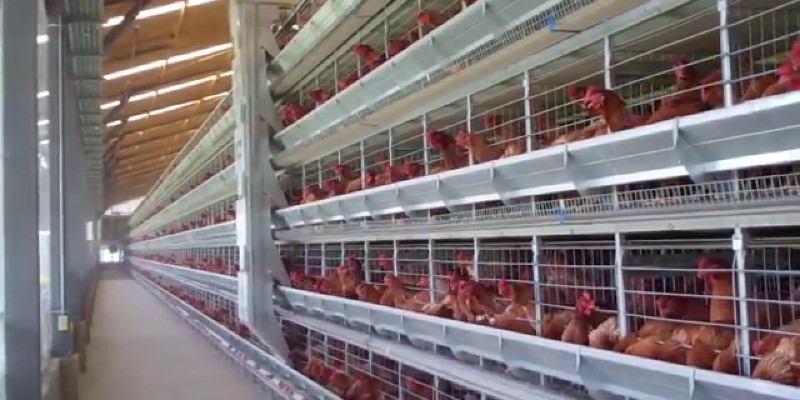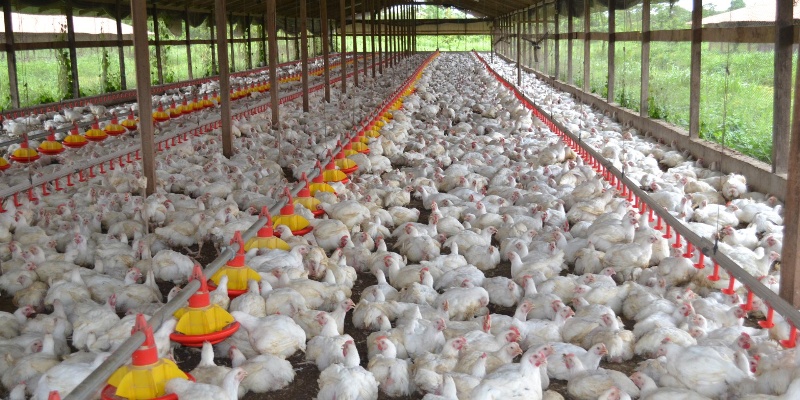
What are the Three Types of Poultry Farming in Nigeria?
Poultry farming is a significant sector of agriculture in Nigeria, providing employment and livelihood for millions while contributing to food security. The country has developed several methods of poultry farming that cater to different market needs and production efficiencies. This article will explore the three primary types of poultry farming in Nigeria: the Nigerian laying hen cage system, the Nigeria broiler cage system, and the cage-free floor system in Nigeria.
Nigerian Laying Hen Cage System
The Nigerian laying hen cage system is designed specifically for the production of eggs. This system involves housing hens in multi-tiered cages, allowing farmers to maximize space and optimize production. Each cage typically accommodates a small number of hens, which simplifies management and ensures that each bird receives adequate care and attention.
One of the significant advantages of the Nigerian laying hen cage system is its efficiency in terms of feed conversion and egg production. These cages can be outfitted with automated feeding and watering systems, reducing labor costs and minimizing waste. Furthermore, the controlled environment within the cages helps to prevent diseases, leading to healthier flocks and higher egg yields.
Egg production is vital to Nigeria’s economy, as it provides a source of protein for many households. Given the rising demand for eggs, more farmers are opting for the laying hen cage system to improve their productivity and profitability. Proper management practices, including biosecurity measures, are essential for success in this system.
Nigeria Broiler Cage System
The Nigeria broiler cage system is another prominent method of poultry farming, focusing on meat production rather than egg-laying. In this system, broilers are housed in specially designed cages that allow for intensive rearing. Similar to the laying hen system, the broiler cage system maximizes space and incorporates automated systems for feeding and watering.
Broilers raised in the Nigeria broiler cage system typically have shorter growth cycles, reaching market weight in just a few weeks. This rapid growth allows farmers to cycle their flocks more frequently, increasing overall productivity and revenue. The use of cages also reduces the incidence of disease, as the birds are kept in a controlled environment, which is crucial given the high-density nature of broiler farming.
Moreover, the growing urban population in Nigeria has led to increased demand for chicken meat, making the broiler cage system an attractive option for new entrants into the poultry industry. Farmers using this system can benefit from economies of scale, as larger operations often lead to lower costs per unit of production.
Cage-Free Floor System in Nigeria
While the cage systems are prevalent, there has been a growing interest in the cage-free floor system in Nigeria. This method promotes a more traditional approach to poultry farming, where birds are allowed to roam freely in a barn or open area. The cage-free floor system aims to provide hens and broilers with more natural living conditions.
In a cage-free floor system, birds have access to outdoor spaces, enabling them to exhibit natural behaviors such as foraging and dust bathing. This type of poultry farming can lead to healthier birds and potentially higher quality products. However, it does come with challenges, including increased risk of disease transmission and higher feed costs, as birds may not gain weight as quickly as those raised in cages.
Despite these challenges, the cage-free floor system is gaining traction among consumers who are increasingly concerned about animal welfare. As awareness grows, farmers in Nigeria may find opportunities to differentiate their products in the marketplace by adopting this system.
Poultry Equipment Manufacturer in Nigeria – Livi
As poultry farming evolves in Nigeria, equipment plays a crucial role in ensuring the success and efficiency of various systems. One notable player in this field is Livi, a leading poultry equipment manufacturer in Nigeria. Livi specializes in producing high-quality cages and automation systems tailored to the specific needs of the Nigerian poultry sector.
Livi’s products support both the Nigerian laying hen cage system and the Nigeria broiler cage system, offering solutions that enhance productivity and operational efficiency. By investing in modern equipment, farmers can achieve better results in terms of feed conversion, weight gain, and overall flock health.
In addition to cages, Livi also provides essential equipment such as feeders, drinkers, and climate control systems. Their expertise in poultry equipment helps farmers adapt to changing market demands and implement best practices in poultry management.
Conclusion
In conclusion, poultry farming in Nigeria encompasses various systems, each tailored to meet specific production goals. The Nigerian laying hen cage system focuses on efficient egg production, while the Nigeria broiler cage system caters to the meat market. Additionally, the cage-free floor system in Nigeria represents a shift towards more humane farming practices.
As the poultry industry continues to grow, manufacturers like Livi play a pivotal role in supporting farmers with the necessary equipment and technology to thrive. With increasing demand for both eggs and chicken meat, understanding these farming systems will be essential for anyone looking to succeed in the Nigerian poultry sector.



